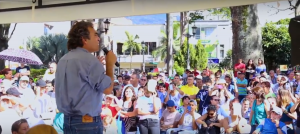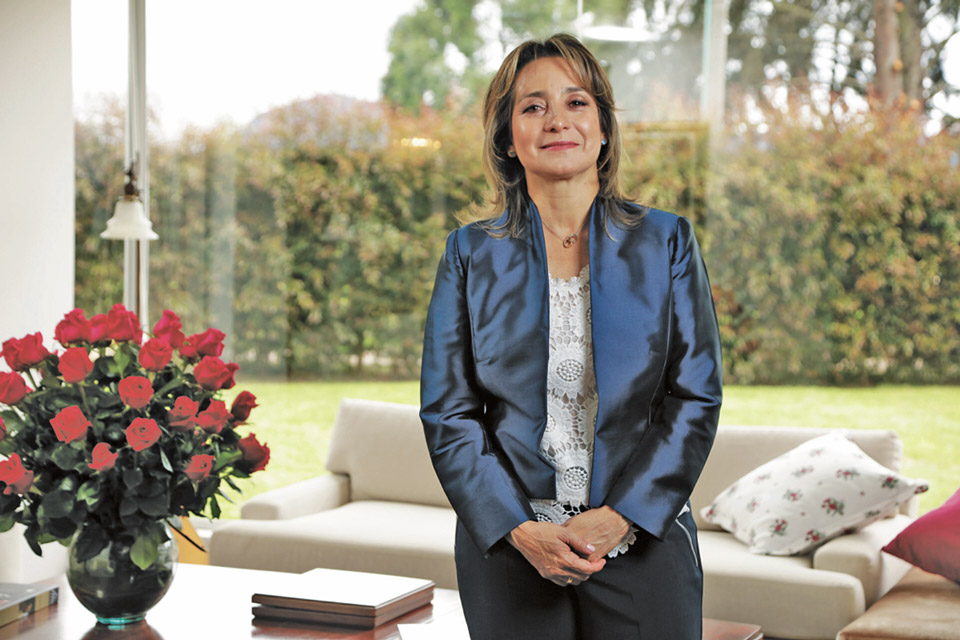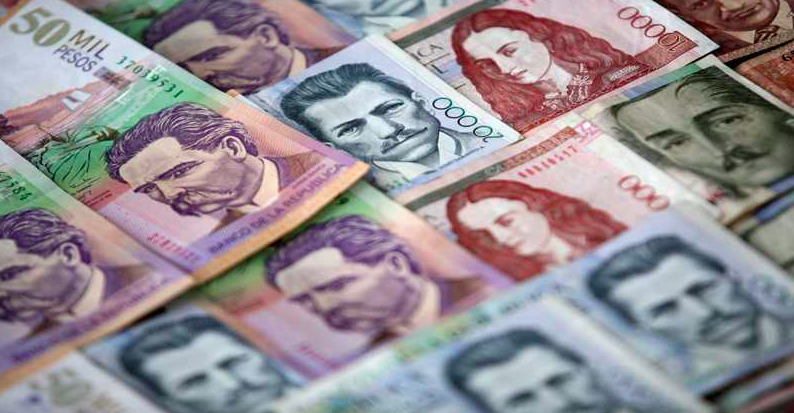
Image still courtesy of sergiofajardo.co
Sergio Fajardo lost to Gustavo Petro by around 300,000 votes and the former candidate’s supporters may play a crucial role in deciding who Colombia’s next president is. The Bogotá Post asked ten Fajardo supporters who they’ll be going for in ten days time as well as their reasoning process at this late stage of the contest. Their answers reflected the difficult choice ahead of them in casting their ballot between two unfavourable choices and the complexities of voting en blanco.
Maria, 30, Journalist from Bogotá
“Right now I am inclined to give my vote to Gustavo Petro. I have gone through the process of analyzing the proposals and seeing who the candidates surround themselves with and I don’t like the Centro Democrático proposals. My problem isn’t with Duque, but with what he represents, and with those that surround him. I believe that Colombia needs leaders who believe in equality for all, including minorities. It’s no use having a candidate like Duque, who claims to be the president of a new generation, when he has connections with people who have already ruled and who have done bad things for the country.”
Paola Andrea, 30, Businesswoman from Bogotá
“I am hesitant about the economic instability that Petro may bring. There are economists, including people who worked with him, who indicate that his economic policy generates instability, is risky and incomplete. In times of economic crises, those who can most be affected are precisely the most vulnerable and the low-income groups: which in turn is the engine of armed conflict.
“Roberto Angulo, an expert economist in poverty reduction, is a great detractor of Petro on these issues. On the other hand, the economic model where the State provides services directly, I believe, is inefficient and can generate high rates of corruption. Although I agree with his discourse in the defense of rights and the construction of equity, on the other hand, a pragmatic government agenda with a team that supports it is essential. Even [former High Commissioner for Peace] Daniel García Peña, who was close to Petro, voted for Fajardo.
Economic instability is not just an imaginary fear. I have a contract which involves the support of foreign investors and a clause indicates that, in case of political instability (like an extreme left government), the contract can be canceled without compensation.
“I think [Petro] has moderated his rhetoric to win votes but I think it’s just a strategy.
“Duque is the type of candidate who, although he has no experience in senior positions in the public sector, demonstrates skills and training. I am not critical per se of Duque, but of his main mentor (Uribe) and the party he represents. The false positives scandals, the murder of key witnesses, the corruption scandals, the rhetoric against Venezuela and, above all, an ironclad opposition to the peace accords. I want no part in it.
“I also think that society is so polarized and it’s “pressuring and stigmatizing” the people that want to vote en blanco.”
Sergio, 28, Journalist from Medellin
“I am still undecided, but unfortunately a blank vote in the second round is useless. My intention to vote is more inclined towards the desire for change, therefore, I will most likely give my vote to Gustavo Petro.
“I voted for Fajardo because I saw in him the best chance for the country, but his decision to vote en blanco will not affect mine, I am clear that after analyzing the candidates’ proposals in the second round, I must choose the one that suits the country best.
Daniela, 22, Student from Cartagena
“So far I plan to vote for Petro, because Duque for me isn’t an option. “I will vote for Petro because he seems less worse than Duque but I think he should try to be less idealistic and be more resilient considering what Colombia has and how it can improve.” It would reasonable to me that Fajardo would vote en blanco. Maybe he doesn’t want to commit himself to any party but yes, I am a bit disappointed. I thought he would try and reach agreements with Petro to make a more consistent government.”
Diana, 27, Growth and Business Development Manager from Medellín
“I still don’t know who I’m going to vote for. On Sunday after seeing the results, tears literally streamed from my eyes. I felt frustrated not knowing what to do because the only candidates I believed in were Fajardo and Humberto. And although I knew that the chances of either of the two remaining were minimal, I didn’t want to lose hope. Now I don’t know who to vote for, or rather, I do know that I would never vote for either of them.
“Neither Duque nor Petro represent what I want for the country. One seems corrupt, anti-peace and represents the man [former President Álvaro Uribe] I think most polarized the country, and Petro is an authoritarian with unfeasible ideas and will involve poor management of resources…If I vote en blanco, I know that I am supporting Duque (and in turn, Uribe). I feel like I’m at a crossroads and I still do not know what to do. My anti-Uribe circle encourages me to go towards Petro, but my morals prevent me from doing so.
“What Fajardo does or says does not affect my personal decision. I am not like the Uribistas, who do only what their idol says they do or what they themselves do in general. The actions of Fajardo as such, only show me the kind of person he is and how consistent he is with what he says and what he does. And if, before the elections, he said he would not take sides, it seems very reasonable that his position would stay the same after the results as well.
“Duque supports corruption and a return to what we have lived previously. And with Petro, I’m afraid of socialism,”
Andrés, 25, Journalist from Medellín
“I think I should be consistent with my ideology, in the first round I voted for Fajardo because I identified with him. I do not feel at ease with any of the two candidates at this moment, so I will vote blank.”
“Since I found out the results, I felt that the most wise thing to do was to vote blank. I only found out about Fajardo’s decision later so it did not influence my position.
John, 32, Lead Developer from Medellín
“I will vote for Petro in the second round because I really am tired of the same politicians that have always been there. Supporting Duque is the same political class of the last 20 years and I don’t like it. The excessive exploitation of natural resources, the lack of transparency and rampant corruption have tired me as a Colombian.
“My vote for Petro is more because I want a change in the politics of this country, and he has shown that he is a man who is not afraid to fight against the powerful. I must clarify that there are many things about him that I really detest but between my two options (vote against Duque or vote en blanco, the latter will give more strength to him) I prefer to vote against Duque.”
Jacqueline Gomez Rodriguez, 24, Confectionary Stand Vendor from Medellín
“I’m not going to vote because neither of the two candidates seems the best option.
“Duque supports corruption and a return to what we have lived previously. And with Petro, I’m afraid of socialism, I’m scared that Colombia will become a second Venezuela and will be handed over to the guerrillas.
“It is not worth it to vote en blanco or to vote for one of the two candidates as neither seem a good option.”
Oscar, 20 years old, Student from Monteria
“I am still undecided, of the three options I only know that I will not vote for Duque.
What he and his cabinet represent for Colombia are against my thoughts and my ideologies. Therefore I am considering Petro or en blanco, leaning more towards Petro considering that voting blank is irresponsible with regards to the future of the country; the blank vote doesn’t influence anything.
“[To get my vote] Duque would have to change many things, leaving behind his alliance with Uribe, Ordoñez, Pastrana, César Gaviria etc, as well as some foolish proposals (in my opinion) such as unifying the courts, minimum consumption, etc. Petro, on the other hand, would have to be someone who manages the country better, a person that can be trusted more since his connections always leave, but we wouldn’t know whether he would do this until he actually does.”
Diana, 30, Travel Designer from Los Llanos
“In this case, the two candidates represent extreme positions. Both have channeled the hatred, fear and frustration of the population to vote motivated by these emotions. That’s why I do not like either of them.”
“I also think that society is so polarized and it’s “pressuring and stigmatizing” the people that want to vote en blanco. The blank vote is a legitimate choice and this country must change in respecting the position of others.”
Editor’s note: The Bogotá Post reached out but failed to find Fajardo supporters who have now definitively decided to cast their ballot for Iván Duque. If you are such a voter and would like to share your thoughts please do write in the comments below and we’ll publish them too.
With reporting by Arjun Harindranath and Sophie Foggin





